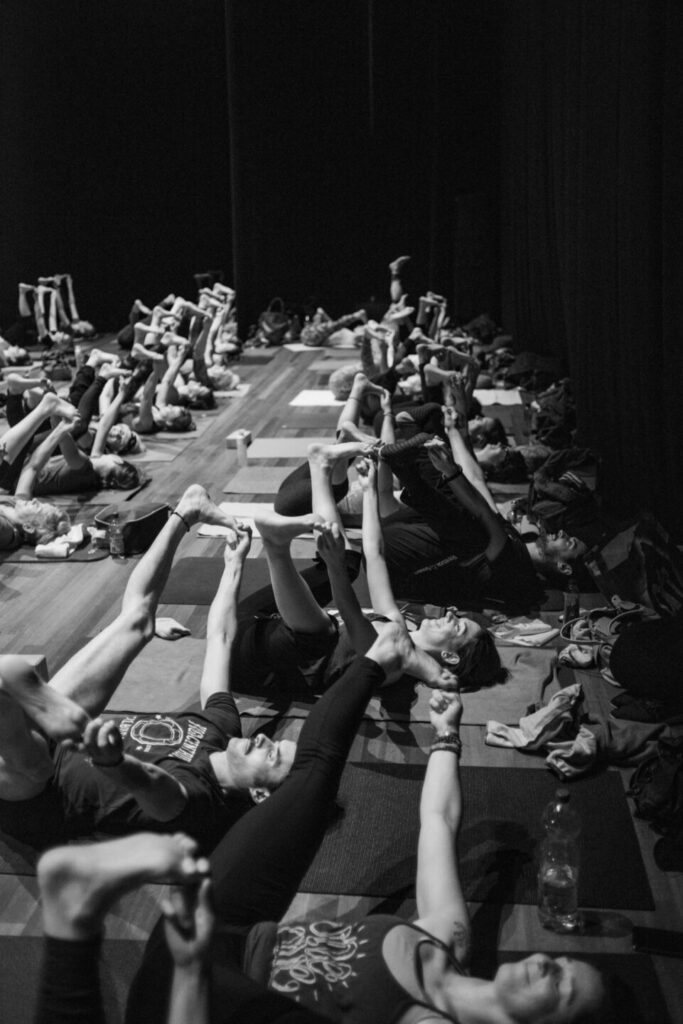We are living in unprecedented times, both domestically and globally. With uncertainty stemming from the Coronavirus (COVID-19) swirling around us on a daily basis, now, more than ever, is a potentially transformational opportunity for us to implement our “spiritual skills” that we work so diligently to nurture and strengthen. Regardless of what your spiritual practice looks like – it could be yoga, meditation, chanting, pranayama practice or whatever it is you’ve come to know as your spiritual practice – now is a great time to put it to use! There are so many faces to a spiritual practice. The point here is not to argue that one is better than the other. But, for the purpose of this blog, I will hone in on one, and that is yoga.
More and more, we hear about the amazing physical and emotional benefits of yoga, from increased flexibility and strength, to creating the foundation for a calm and peaceful mind. So…why is YOGA so powerful?
Yoga can be defined as the integration of mindful breathing with movement that cultivates strength, flexibility, stamina, and balance, and nurtures not only our physical, but also our emotional and spiritual well-being. Yoga can also be self-soothing, especially in a restorative yoga class. The benefits of restorative yoga include a dialed down stress response (in other words, the parasympathetic nervous system has come online) and a calm nervous system. Through this muted stress response, we see a decrease in physiological arousal (including lowered blood pressure and heart rate), an amazing benefit for those who tend to feel wound up, on edge, and restless.
There are many variations of yoga in today’s modern world, including hot yoga, yoga for kids, yoga for men, yoga for women, and Power Yoga, just to name a few, and they tout similar benefits as they generally fall under the term Hatha Yoga.
Given the “on the go” lifestyle and multitasking mentality of westerners, we can find ourselves in a chronic state of hyperarousal in which the sympathetic nervous system (SNS) (or fight-flight-freeze) becomes overactivated. In this way, our busy and chaotic lives can lead to gastrointestinal issues, weakened immune systems, tension, as well as increased anxiety and depression. Moreover, living in a chronic state of reactivity (or stress) keeps the SNS alive and wired, which over time drains our levels of dopamine and serotonin in the brain, our “feel good” neurotransmitters. Low levels of these neurotransmitters can be linked to things such as the loss of pleasure and enjoyment in life, a common occurrence in depressed individuals.
Yoga is often practiced to facilitate ease in both mind and body, creating a ripe environment for meditation and concentration. Yoga poses can range from activating poses such as sun salutations and arm balances, to relaxing and calming poses. Activating poses are often practiced in the beginning of a class and stimulate the sympathetic nervous system. When followed by relaxing poses, such as supported back or forward bends, the parasympathetic or relaxation response is activated, enabling one to drop into a more calm and peaceful place. Ultimately, the physical practice with an emphasis on pranayama, mindfulness, and movement is a pathway to moving through emotional and physical tension, preparing the body for a sitting meditation.
The mental benefits of yoga, and the benefits of yoga for men and for women are diverse and expanding. Yoga is a unique mindfulness-based practice in that it incorporates physical movement with present-moment awareness via your breath. The use of breath as a focal point to guide and keep you grounded in your body, especially when the mind wants to distract you with seductive thoughts and emotions, provides a dynamic platform for working with mental health issues.
Mental health issues such as depression, anxiety, and chronic stress are prevalent in the United States and are considered serious health conditions alongside heart disease, cancer, and asthma. Integrative and holistic mind-body practices such as yoga and mindfulness meditation have become increasingly popular and beneficial when it comes to psychological and physical health issues. In fact, yoga and meditation are considered stress reduction techniques that can influence how we relate to mental and physical health issues, ultimately leading to less suffering and attachment to life outcomes.
In expectant mamas, there are enormous benefits of prenatal yoga ranging from physical, emotional, and spiritual changes that prepare them to create and welcome another human being into the world. When your body is healthy, it provides a better atmosphere for your baby to grow and develop. Physically, a prenatal yoga practice is an amazing way to stay healthy and strong, especially with significant changes to the body due to hormonal fluctuations. Yoga for pregnant women, in particular, can cultivate relaxation and help to prepare a mother’s body and mind for the birthing experience.
It is evident that yoga has amazing and numerous benefits that have surfaced not only through our daily practice, but are also backed by science. If you are new to yoga, I highly recommend that you give it a try and see for yourself. A great way to test the waters is to take some online yoga classes from the comfort of your own home. Power Yoga on Demand offers a comprehensive video library of classes, and you can sign up for a 7-day FREE online trial. If you are not totally fulfilled with this offering, you can always cancel within the first 7 days! Let’s take this time of quiet and solitude to turn inward, to root, and to step into conscious living that is dictated by unconditional love, compassion, and understanding.


2 thoughts on “The General Benefits of Yoga”
这个不错耶,我喜欢!
Thanks. This is a wonderful piece on the benefits of self-care and positivity.